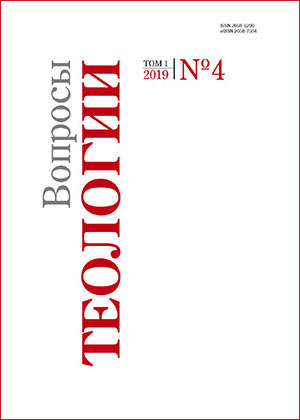The relations of the church and the state in the Russian public polemic in the 1870–1890s
DOI:
https://doi.org/10.21638/spbu28.2019.404Abstract
The article examines different points of view on the relations between the Church and the state, expressed by thinkers, publicists and public figures of the second half of the 19th century. Slavophiles (A. A. Kireev) believed that during the reign of Emperor Alexander III, the Slavophile idea must win and become state ideology. The existing system of control over the church provoked a polemic concerning the role of the church in the life of the state and society. Bureaucratic nationalists — K. P. Pobedonostsev and M. N. Katkov — adhered to the position of “cesaropapism”, believing that the Church should serve the state in order to increase its power. The “papocesarists” (K. N. Leontiev, T. I. Filippov, and V. S. Solovyov), believed that the goals of the Church cannot be limited by national interests and concern ultimately spiritual rather than political tasks (in Soloviev’s opinion, the church and political spheres merge into theocracy). Metropolitan Anthony (Khrapovitsky) is the voice of the Byzantine Orthodox tradition, according to which absolute and sacred monarchical power harmoniously co-exists with the Church, headed by a patriarch, as two natures in Christ.
Keywords:
symphony of authorities, state church, theocracy, nationality, slavophilism, Russian idea
Downloads
References
References
Downloads
Published
Issue
Section
License
Articles of "Issues of Theology" are open access distributed under the terms of the License Agreement with Saint Petersburg State University, which permits to the authors unrestricted distribution and self-archiving free of charge.




